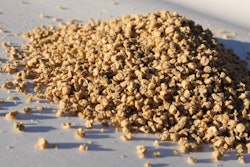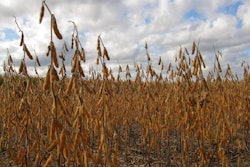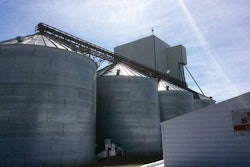Yeast manufacturer Lesaffre is investing RUB400 million (US$6.2 million) in a new facility dedicated to the production of Actisaf live yeast at Voronezh Drojjie production plant in Russia.
This new facility, which began production at the start of 2016 and was officially opened June 23, is mainly dedicated to the production of live yeast for animal nutrition and health.
This new development extends the range of yeast that is already produced at the site. The extension allows Voronezh Drojjie to achieve annual production exceeding 20,000 metric tons of dry yeast, becoming the largest yeast manufacturer in Russia.
To better support its customers and to facilitate the development of high-quality animal feed in Russia, Lesaffre-Phileo will produce Actisaf in Russia. Previously, Actisaf was only manufactured at Lesaffre Marcq-en-Baroeul’s production plant in France.
“Previously, Actisaf was imported but now, with our complete range of feed additive solutions and local production, we are well-placed to become the key reliable partner for progressive Russian farmers,” said Frédérique Clusel, general manager of Phileo. “We decided to invest in Voronezh – an area of Russia with strong dairy and meat production – and to support this investment, we will recruit local experts in each species to better serve farmers. Our team is here to help farmers with high-value technical support to help them drive their business performance forward.”
How Actisaf works
Actisaf is produced with a patented process that delivers an ability to withstand manufacturing processes, especially its record granulation thermostability at temperatures up to 92C. Backed up by rigorous science, this unique probiotic can be relied upon to enhance the health and performance of ruminant and pig breeding and is now the standard solution for modern farming.
In dairy cows, Actisaf preserves the balance of the cow’s rumen ecosystem by acting in a complementary manner on the rumen biotope and microbiota. Actisaf strengthens the reductive conditions in the rumen. It therefore encourages stabilization of the rumen pH, preventing the risk of acidosis. This global action at the level of the rumen ecosystem helps to increase the digestibility of the feed. By encouraging good rumen function on the farm, Actisaf maximizes milk production and milk quality. It is regarded as the reference product in modern livestock farming.
In pigs, Actisaf acts, on one hand, on the balance of the gut microflora and, on the other hand, helps to limit local and systemic inflammation caused by pathogenic bacteria present in the environment. In gestation and lactating sows, Actisaf improves immune transfer to piglets, while significantly improving litter size and body weight gain of piglets pre-weaning. When used in the post-weaning period, it reduces the risk of diarrhea. Actisaf also acts on feed efficiency, for better animal productivity particularly in the fattening period.

















